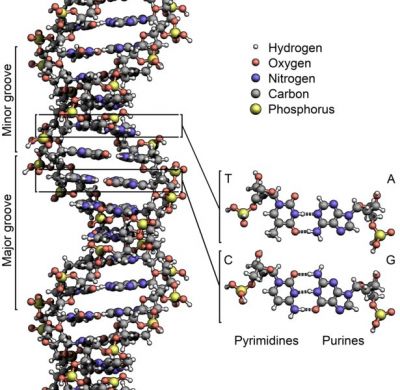Exploring the human, animal and plant genome

DNA Structure+Key+Labelled.pn NoBB, fot. By Zephyris (Own work) [CC BY-SA 3.0
Research into the human genome is offering us fascinating insights into how DNA determines our health and identity. Meanwhile, exploration (and in some cases modification) of the genetic material of plants and animals has the potential to improve quality and tackle disease.
Research on these subjects is quickly accelerating - a recent invention
in the field of genetics is the gene chip or DNA microarrays which
gather tens of thousands of oligonucleotides (short DNA molecules) on a
single glass slide.
Affordable genome sequencing is expected to become reality for many
in the next few years. This kind of knowledge may help determine disease
susceptibility and whether a drug will help a patient or cause serious
side-effects, paving the way for personalised therapy based on an
individual's genetic profile.
When it comes to plants and animals, researchers continue to explore
and develop genetically modified organisms (GMOs). This technique
allows selected individual genes to be transferred from one organism
into another, also between non-related species.
This technology is not without controversy however. Currently, only
one GM crop - a pesticide-producing maize known as MON 810 - is grown on
EU soil and safeguards are in place against it in some Member States.
Meanwhile, 49 GMOs for animal feed are in circulation in the EU.
published: 2015-01-23